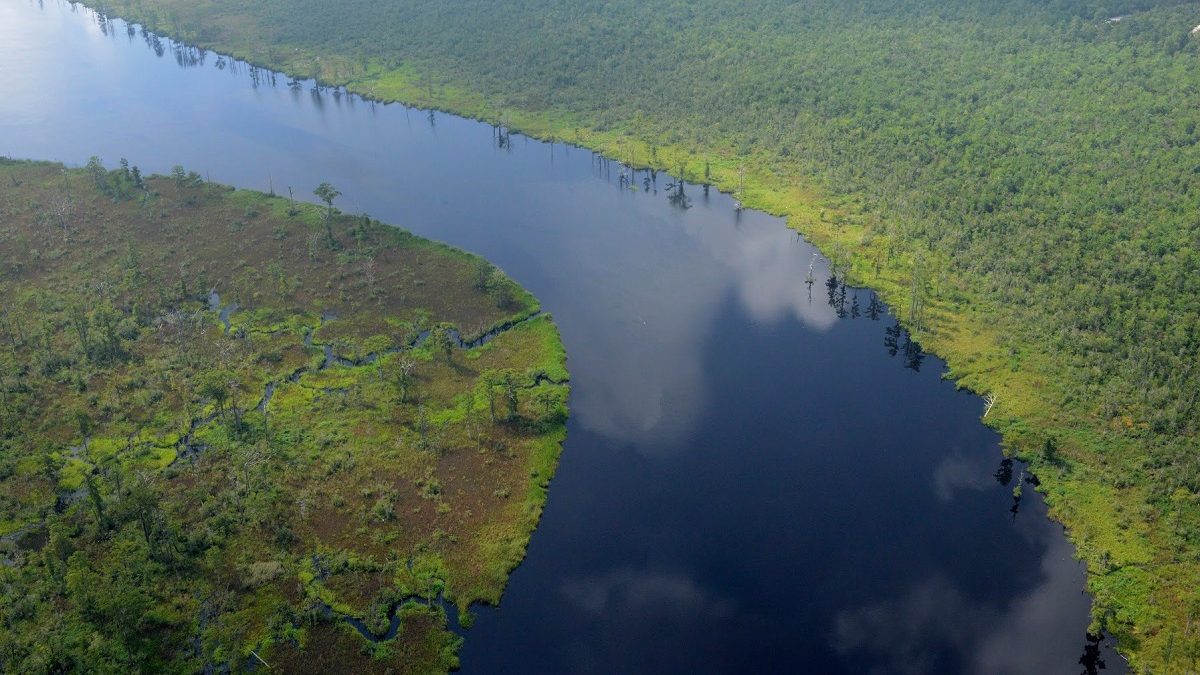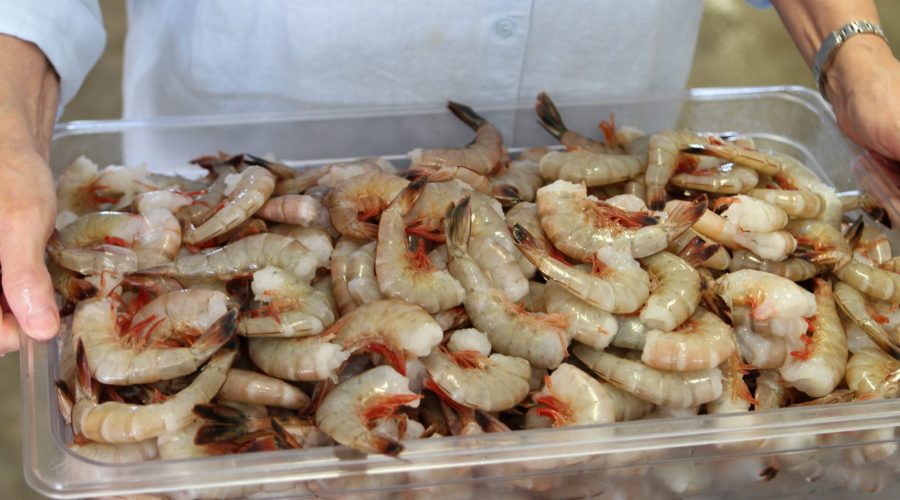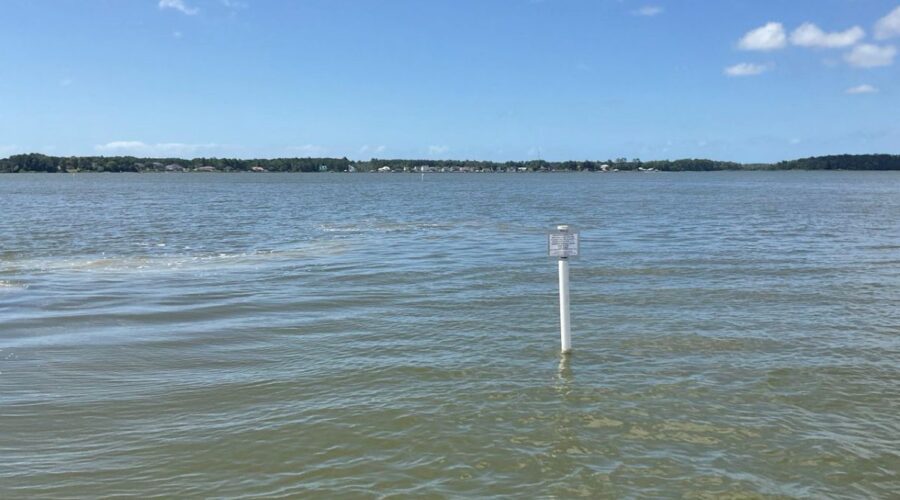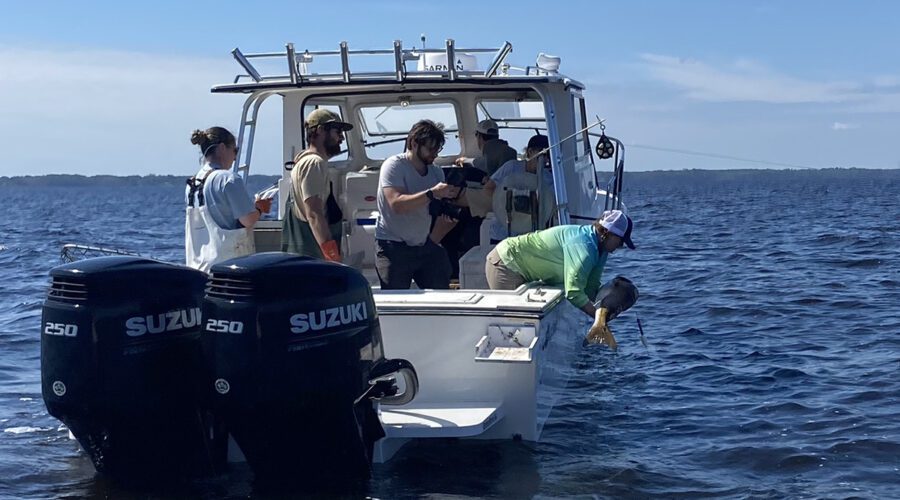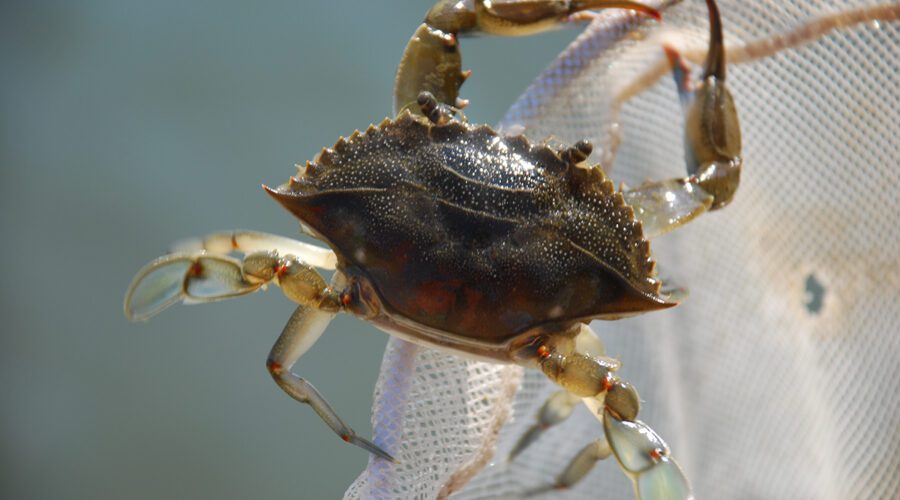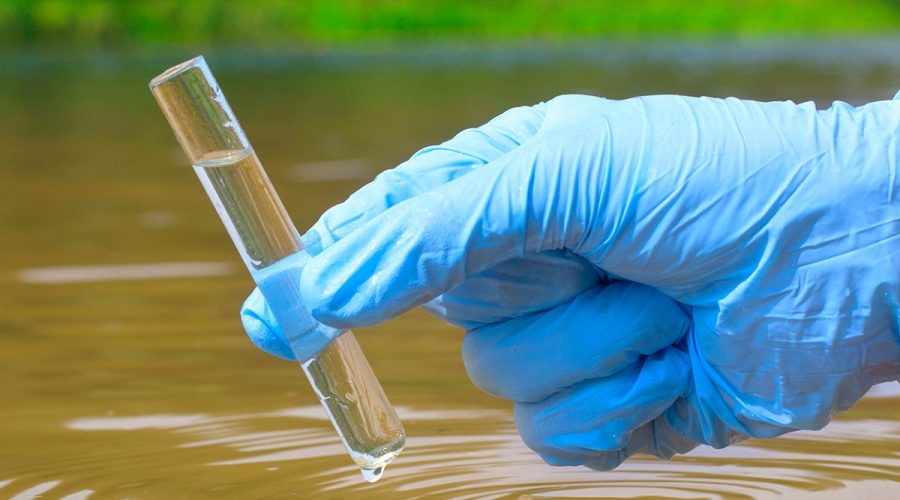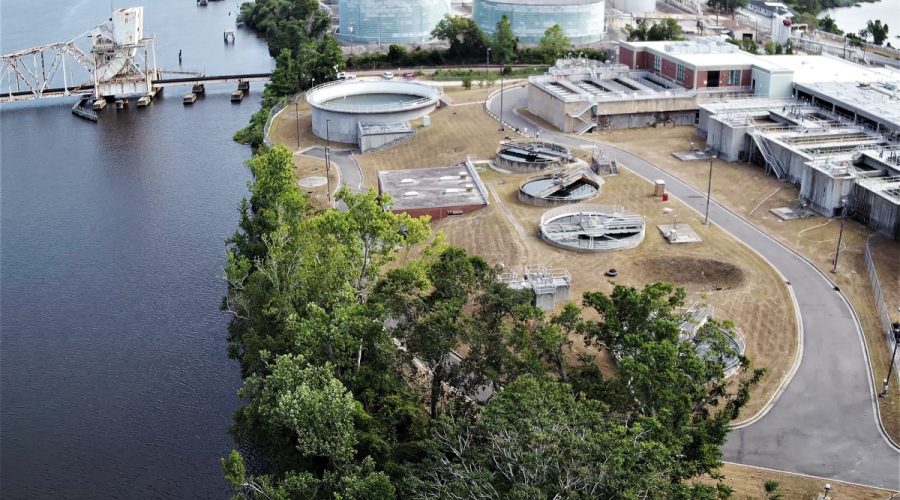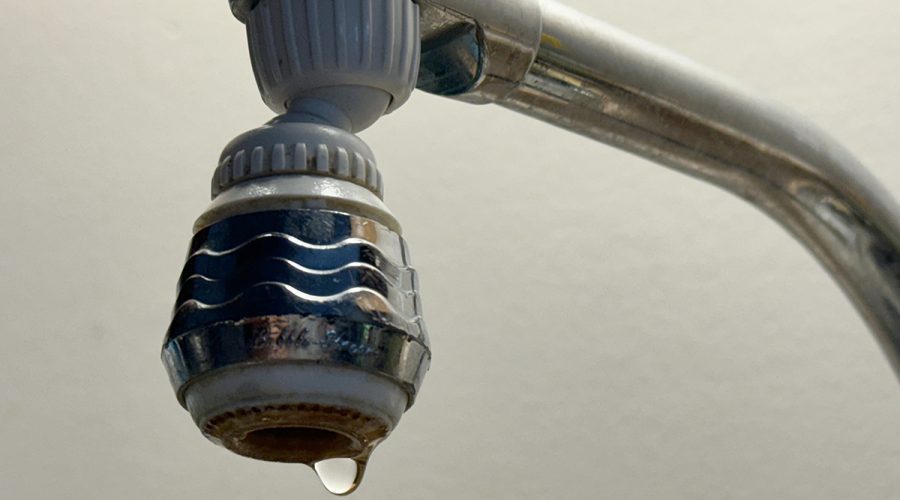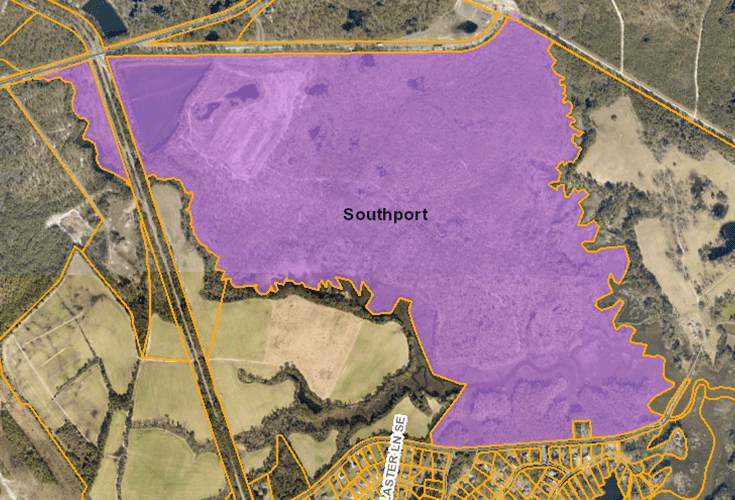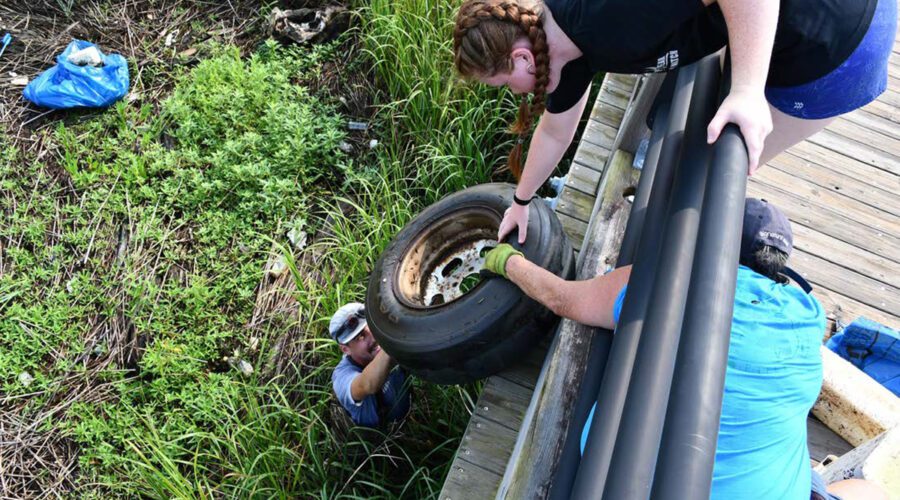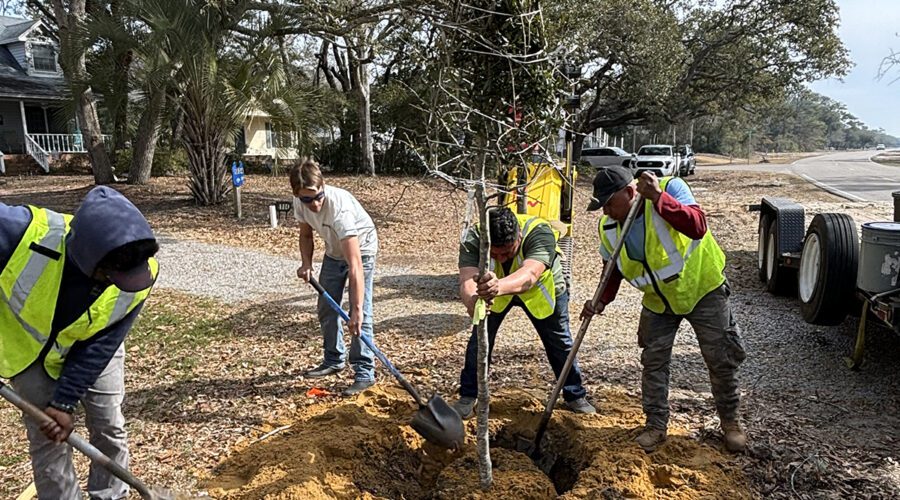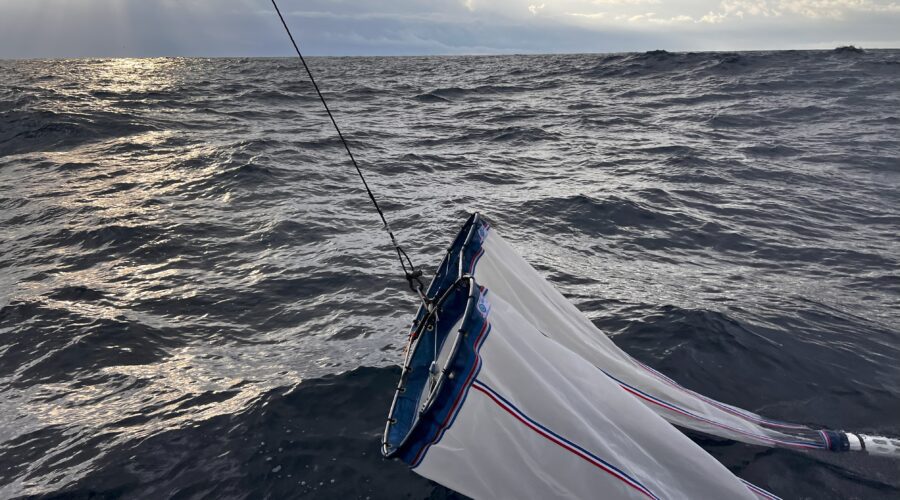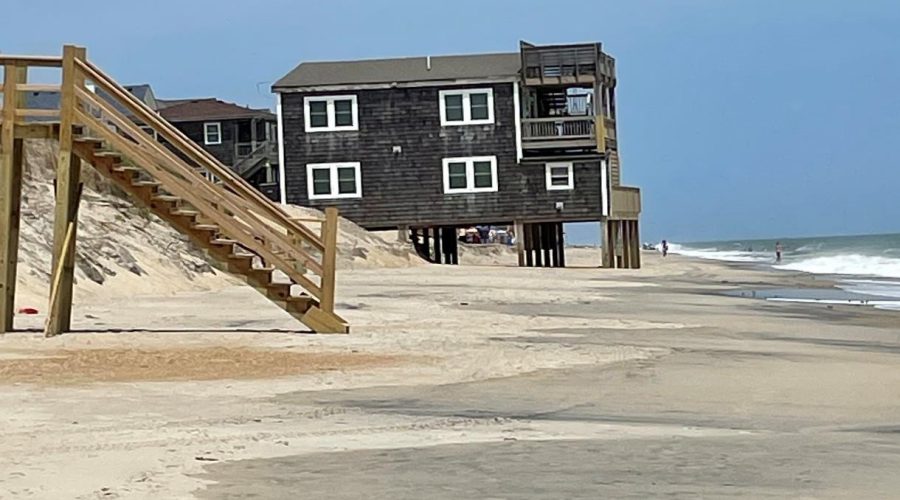The advocacy organizations’ motion against the chemical company argues that unsealing the 21,000 pages of documents “will help communities understand the harm the facility has caused, and will continue to cause, to their own health, their property values, and even the lives of future generations.”
Tariffs not a long-term fix for shrimping industry: shrimpers
While U.S. shrimpers lauded the Trump administration’s tariffs on imported shrimp, their message to the government is to stop subsidizing foreign shrimp production.
Plan aims to curb shellfish lease conflicts, moratorium fervor
Concerns over damping the state’s growing aquaculture industry amid a push for a halt to new leases by leaders of Topsail Island three towns have sparked a proposal to create a GIS tool to improve site selection.
Satellite tracking study aims to unlock more red drum secrets
A project now in its second year seeks to temporarily tag and track by satellite 40 of the saltwater species so popular with recreational anglers could help fill data gaps that decades of research studies have so far left open.
Blue crab management plan revision runs into rough waters
Proposed limits on the commercial harvest of blue crabs faces critics who say the management plan amendment is based on a benchmark stock assessment using data from 1995 to 2016.
Chemours, DuPont move to keep court records sealed
Attorneys for Chemours and its predecessor company DuPont have asked a federal judge in a lawsuit brought by Cape Fear area water utilities to keep thousands of documents out of the public eye.
No NC limit on 1,4-dioxane means water customers bear costs
It costs an additional $1-$3 million a year to remove 1,4-dioxane, a likely carcinogen, from drinking water drawn from the Cape Fear River, costs that could be avoided if upstream polluters were required to reduce the amount of the compounds they discharge.
EPA drinking water grant for Brunswick snarled by DOGE
The Trump administration tried to cancel as “wasteful” a $20 million federal award to help Brunswick County’s rural communities of Supply, Ash and Longwood replace lead water pipes and clean up nearby wetlands, while the cofounder of a recipient nonprofit insists, “Our grant is so much about community.”
Southport gives state more time on proposed land deal
The Southport Board of Aldermen voted 4-1 last week to extend an option agreement to the state Wildlife Resources Commission to purchase from the city more than 400 undeveloped acres, but one member objected to the $637,000 price.
Utility industry has heavy hand in draft PFAS monitoring rule
As a committee of the Environmental Management Commission works to draft a PFAS monitoring framework rule, environmental advocates argue the draft language protects industry polluters.
State’s fix for costly litter problem ‘not efficient or sufficient’
“It’s like you’re Band-Aiding over an artery,” says Rob Clark, of Cape Fear River Watch, a coauthor of a report that found that cleaning up more than 7,000 tons of litter in North Carolina cost more than $56 million in 2023.
Public mixed on game land access pass plan during hearing
The Wildlife Resources Commission has proposed requiring paid passes for recreational uses of state game lands, a plan that could improve safety during hunting season but may make access out of reach for large user groups.
Bittersweet event: Restored Reaves Chapel to be dedicated
The long, challenging restoration of one of the oldest African American buildings in southeastern North Carolina is finally complete, albeit after the death of one who spent the last 15 years of his life fighting to preserve it.
Oak Island looks to grow its Tree Preservation Project
Hurricanes and development have diminished this Brunswick County beach town’s naturally protective tree canopy, but a planting effort and new rules may reverse the trend and ensure the name remains fitting.
Researchers embark on study of shore-to-sea habitats
The UNC system project allows researchers to study habitat changes from the mouth of the Cape Fear River to the Gulf Stream’s warm waters.
Judge restores state’s 30 erased coastal development rules
A judge has ordered that more than two dozen longstanding rules used to guide coastal development and protect resources be placed back into the North Carolina Administrative Code.

